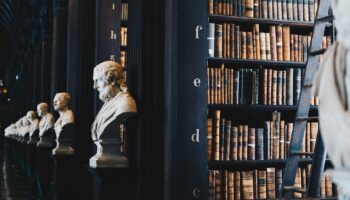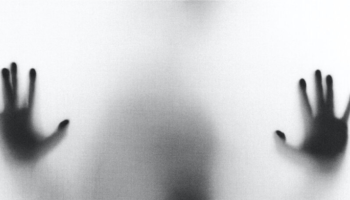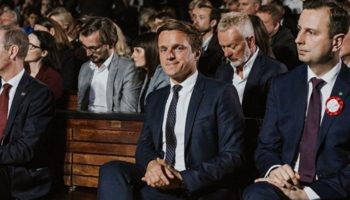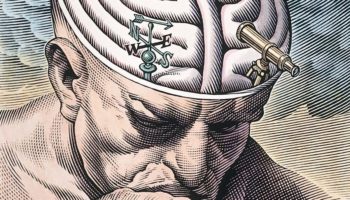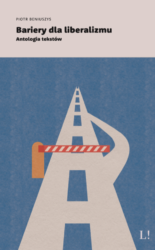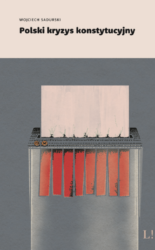Poland cannot allow to have its law go downhill nor to have sect-like religious behaviors promoted. The former puts paid to the accomplishments of the Polish Round Table Talks of 1989. The latter, on the other hand, disgraces the sheer idea of religion.
I believe in the power of dreams that can truly change the reality – just as Martin Luther King did, when in 1963, he delivered in Washington his famous speech: I Have a Dream. In this short address, the Protestant minister effectively drew on irrepressible myths of American society, which combine the belief in a causative power of the human will with belief in the presence of God who enhances in humans all that is noble and good.
Despite the traumatic history of Afro-Americans, who for centuries had been treated by their white co-citizens as slave workforce, King managed to identify what brings them all together and referred to their common origins rooted in the U.S. Constitution.
Currently, it’s common knowledge that Martin Luther King’s speech is considered to be national heritage by all Americans. We, however, seem to lack in Poland this kind of unanimous consesus about anything.
Instead of a common belief in our common history and humanity, we witness ever-increasing polarizations of the Polish society. One of the main reasons for such a situation is precisely religion, which has been associated with sect-like Catholicism viewed solely in fundamentalist terms.
What’s even worse is that exactly such a narrow understanding of Catholicism became effectively appropriated by politicians striving to introduce authoritarian regime that stands in a direct opposition to the democratic structures of our state.
At the moment, the politicians ot the ruling party (Law and Justice, PiS), attempt to convince the Polish society via the appropriated public media that they are the only legitimate heirs and defenders of the authentic civil, partiotic or even religious rights of the people.
Moreover, PiS tries to align the public education system, the promoted model of culture or even the proposed model of international relations to such an understanding of national identity.
The recenlty launched “Liberal Clubs” project is therefore something I fully support. It’s an initiative that might effectively oppose this archaic and anti-modern understanding of a state.
If as a civic society we do not effectively oppose this progressing degradation of the Polish state, we risk being marginalized on an international stage and going back several centuries in our civilizational devlopment.
I am strongly convinced that the liberal intelligentsia in Poland is capable of putting forward an attractive and effective alternative to the pernicious vision of a state imposed by the government via government propaganda financed at least partly from the public funds.
I am also certain that we might also work out modern forms of co-existence of believers and non-believers with more open-minded Catholics, including some of the priests and bishops.
Poland cannot allow to have its law go downhill nor to have sect-like religious behaviors promoted. Currently, there exists a real danger that on the one hand, Poland will move away from the standards of a democratic state and the model of an open-minded Catholicism having its origins in the Second Vatican Council. This is why we are in a dire need to join in the educational programme of repairing both the state and the Church.
Alas, we cannot do it on our own. Only joint efforts of all willing people can make a difference. We cannot allow for the history of our country to serve as an ideological tool for a small group of politicians and clergy that intends to take over the state and religion.
We must reply by drawing from the best traditions of our country that constituted its very foundations: openness and tolerance. History cannot be treated as a source of legitimizing party and religious interests. We cannot allow for a structural amnesia that makes it easier to discard from history real fact and heroes, while at the same time makes it possible to create false heroes and “alternative facts”.
Archives (esecially the resources of the Institute of National Remembrance, IPN) have become one of the most powerful sources for the new historical policy of the Polish government. Thus, these have fallen into the hands of the people who are irresponsible and blinded by power in a bid to create a new, “original” account of Polish history.
Yet, it’s precisely archives that – when viewed in the correct historical context – should serve as the pretext for promoting national consensus. We shall therefore restore their rightful function of an instrument for revealing the truth about recent history. We might, hoever, need the assistance of church historians, who could fully reconstruct the truth about the relations between the Church and the state.
Finally, I hope that the emerging concept of “Liberal Clubs” will develop into a strong social initiative that will help restore faith in the power of civic engagement and might help eradicate from public space all extreme voices that destroy the structure of a democratic state.
The article was originally published in Polish at: https://liberte.pl/panstwo-moich-marzen/
Cover photo: USDAgov|| Public domain




